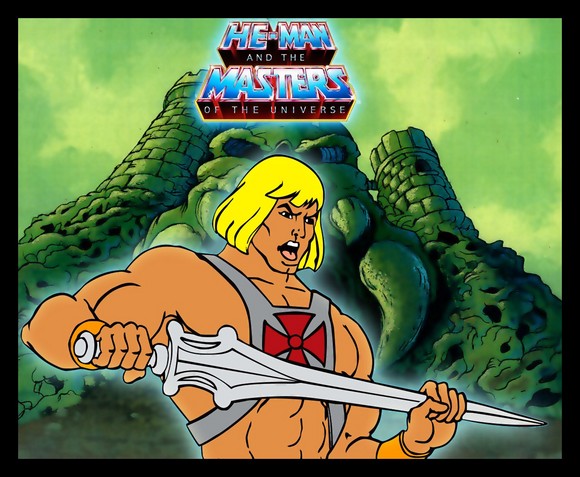By the Power of Greyskull…
Shockingly, one of the things they don’t really teach you in law school is how to negotiate. They sort of expect that you know how to do it and that if you don’t, you’ll learn fast enough once you’re kicked out of the nest.
Looking back at my first year as a lawyer, I’m kind of amazed at some of the things I tried in negotiating.
“Maybe, if I don’t call him back until Friday, he’ll spend the next few days fretting over things and then he’ll jump at the chance to come to an agreement when I do call.”
“Maybe if I agree to all of these small details, she’ll be appreciative and reciprocate by agreeing to that one huge thing I want.”
“Dammit, I have to exert control; I will refuse to back down on this random issue that is barely important to me to show them I’m not willing to give up my ground.”
While I think an inclination to use tactics like this is normal, let me be clear: these are all stupid ideas.
Why are they stupid?
Because they are focusing on the wrong thing. Each of these tactics is focused on gaining or recouping power in the situation; none of them are focused on what you actually want out of the situation. And power without purpose is impotent.
Power without purpose is also dangerous. It’s distracting and intoxicating. And when we shift our focus from what we want to gaining power, we are more likely to make agreements that aren’t in our best interest.
So how do you force yourself to resist the urge and use your power for good and your best interest?

With your BATNA.
Knowing what your best alternative to the deal at hand is can help you evaluate the negotiation as it is happening.
Your BATNA is a standard you can hold every offer up against and ask “Are you better than what I can have with my BATNA?” If the answer is “yes” it is worth continuing or completing the negotiation**, if the answer is “no,” you can reject the offer with a clear conscious.
Your BATNA can also help you focus on what you want. By virtue of what it is (the best alternative you have if the deal at hand falls through), your BATNA is designed to give you most of what you want. It will fulfill your minimum needs/interest if you have to use it. (If it doesn’t, it’s not really your BATNA.)
If an offer you have or a tactic you’re employing is so wildly different from what your BATNA can give you, it’s time to take a deep breath and evaluate what’s going on. Your tactics should help you get what you want out of the negotiation, not drive you away from it.
So, let’s say a client has been hounding you about a due date; they’re being unreasonable and demanding work get done on too short a schedule. You’ve tried reasoning with them, but they won’t budge.
They also have a big client coming in the day after next and want to give a presentation about the item you’re working on. They call desperately asking for your help with drawings, mock-ups or anything you can possibly throw together to impress their client.
If you wanted a pure snatch-grab power play, you could say “no” and passively agressively suggest it’s because you’ve got a big deadline looming. Or you could say “yes” and demand a rate so high that it is punitive.
If you wanted to be conciliatory in the hopes they’d respond by being more flexible about the due date, you’d take the job without talking about price or the due date, turn it around fast like and hope they are understanding.
If you wanted to use your BATNA, you’d think. You’d think, “What is the best thing that can happen if I don’t negotiate a deal for this last minute project?” The best thing is the status quo — no extra project, no extra $ and the deadline remains the same. (Not a damn bad BATNA, my friend.)
And so, then you’d think, “what do I want?” The deadline to be reasonable.
Looking to your BATNA, you’d realize saying “No” and blaming them for it or demanding an outrageous rate will harm the relationship with the client. Doing the work without talking about the things you’re interested in will cause you harm and further imbalance the relationship.
So those options aren’t options He Man would take. (Because of the stupid.)
He Man would approach the client and address the issue in nonaccusatory language, “You know my rates for rushes are higher because I gave you my rate sheet at the beginning of this project. Assuming you’re willing to pay those rush rates, if I do this project for you, I will not be able to meet your deadline for the other work. I can do this project if the due date for the other project is XXXX.”
And that is how to use power properly.
Say it with me, kids: “By the power of Greyskull, I have the POWER!”
** Just because an offer is better than your BATNA doesn’t mean you automatically accept it. You want the best offer you can get and chances are there are a number of offers between The Precious and your BATNA.
Categories: Negotiation Strategy



I always loved He Man.
And, I am totally using this today with my favorite opposing counsel.